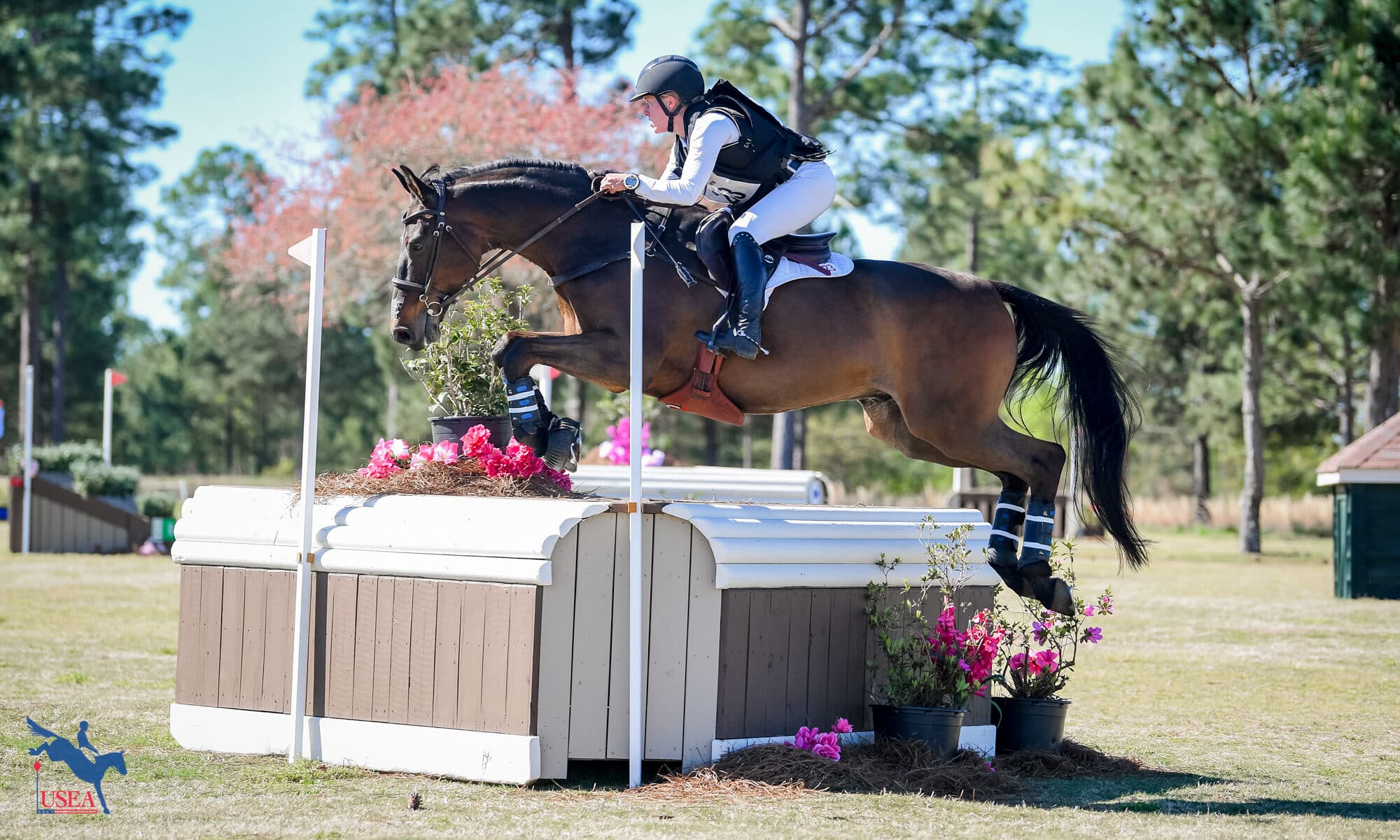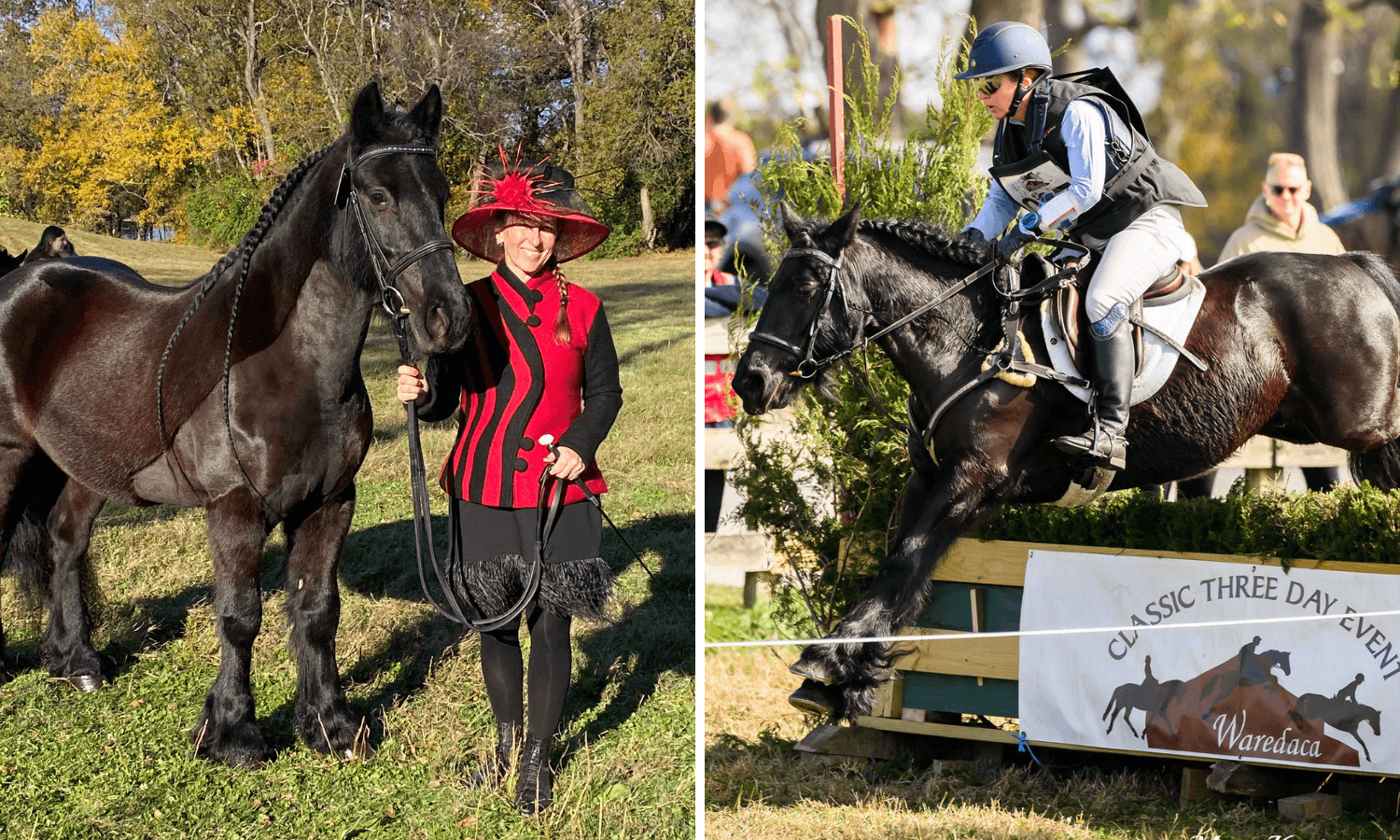Who's In Charge Here?

The following is an excerpt from "RIDE BIG, The Ultimate Guide to Building Equestrian Confidence" by John Haime
Let me introduce you to a key building block for confidence in the equestrian athlete: Your Own Voice. This is the voice that’s with you 24/7, being fed by things you’ve done, people who have influenced you, and things that have happened to you. It provides commentary, opinions, and general narration about your life and experiences. It emerges out of your thoughts and emotions, and can stir both. This voice will be a major influence on your confidence, often determining whether you Ride Big or ride small. It is the most important voice in your life, and is the final gatekeeper of your performance and to your confidence.
What is your voice telling you?
Is it positive and giving you the green light to express yourself fully, or is it negative and telling you to put the brakes on? Is it understanding and supportive or judgmental and impatient?
Understanding Your Own Voice isn’t about positive and negative thinking, although your voice generally does have two fundamental ways to go—positive and negative. We all know it’s important to be positive, but that it’s often difficult and sometimes not practical to be positive all the time. The real secret to shaping your voice is making the distinction between fact and fiction, and making sure your voice is telling you truthful stories.
In my work with world-class professional and amateur athletes, I’ve noticed many of the stories riders tell themselves are fictional: They are not the real truth, do not reflect their reality, and, therefore, are unproductive. So, the search for the truth in your own narrative is important.
The Challenge for You
Creating a more supportive voice for yourself and distinguishing between fact and fiction is often not easy to do. Why? Well, the deck is stacked against you in three basic ways:
1. Your biology –You are a creature that is primarily programmed to survive. The tendency, therefore, is for human beings to be naturally negative—that is, to protect yourself from threats by saying ‘no’ to any risk. Being positive and saying yes to risk is not your primary, natural response; you must constantly work against that natural tendency.
2. Your quantity of thoughts—Research by the National Science Foundation shows that the average person experiences a minimum of 50,000 thoughts each day. About 80% of those thoughts are negative, and 95% are repetitive.
Simply put, you are being overwhelmed by constant chatter, and you must become skilled at deciding what is fact, what is fiction, what to ignore, and what narrative might help you Ride Big.
3. Your history—What’s in your history also shapes your thoughts today. You may have limiting beliefs about your riding from past experiences—a coach who didn’t believe in your abilities, a horse you didn’t connect with, or other moments that made it difficult to think you could do it. Let’s explore this last point in a little more depth.
Are You Getting Stuck In The Same Old Story?
Let’s talk about your riding history and how that has shaped your voice—good or bad.
Remember that 95 percent of your negative thoughts are repetitive, so what stories from your past keep repeating?
Maybe it is a coach who was overly critical, and for some reason you can still hear that voice today when you ride. Somehow that voice attaches itself to your own, and those criticisms are the stories you keep hearing. Do you have old, repeating stories that run through your thoughts when you ride that reflect something from the past that isn’t relevant today? It’s important to identify them and be ready to challenge them when they pop up.
As part of your work to discover the truth in your voice, pause for a minute to think about old narratives that might be influencing your riding today. When those old stories appear, take some time to think about how they could be limiting you.
How the Best Equestrian Athletes Shape Their Voice
What stories do the top equestrian athletes tell themselves to help get extraordinary results? Don’t worry, everyone has similar challenges to yours. Even the top riders and coaches in the world must address their inner voice and find the truth.
Olympic gold medalist in dressage, Laura Tomlinson, had challenges with her voice, but she overcame the stories that limited her in order to rise to the top of her sport.
“Early in my career, the story in my thoughts was that I was privileged and blessed, so my voice was repeatedly telling me two stories, based on my results,” she says. “The first was that if I didn’t do well, it was a massive failure. And the second was that if I did do well, I couldn’t really be happy with it because I felt like I should have done it anyway. I felt like I didn’t have the right not to do well. So, growing up I battled with this judgmental voice.”
Things changed for Laura with a new partner: the Danish Warmblood Mistral Hojris, or “Alf.”
“The story in my head shifted when I got Alf,” she explains. “He had a reputation for being difficult, and I worked very hard to build a partnership with him. When I eventually started doing well with him, I felt more confident, and that I earned the respect of my peers because of the progress I made with him. That’s when the voice started to change from ‘I should be doing well because I’m blessed with things given to me,’ to ‘I’ve worked hard, overcame a difficult challenge, and I know I can ride because I’ve done some great work with a difficult horse.’”
For Laura, the shift from a judgmental voice to a more liberating, tolerant was a turning point in her dressage career. She went on to win Olympic team gold and an individual bronze medal with Alf in the 2012 London Games.
This is a great lesson in the power of Your Own Voice. Laura’s early stories emerged from a place of what she perceived she should achieve, based on her background and status. But when her perception changed and she felt she deserved it because she had done the work, the voice shifted. She gave herself permission to Ride Big and excel in dressage as part of an elite group of riders.
This excerpt from "RIDE BIG" was published with permission from Trafalgar Square Books. For more information, or to purchase the book in print or audio, go to:















